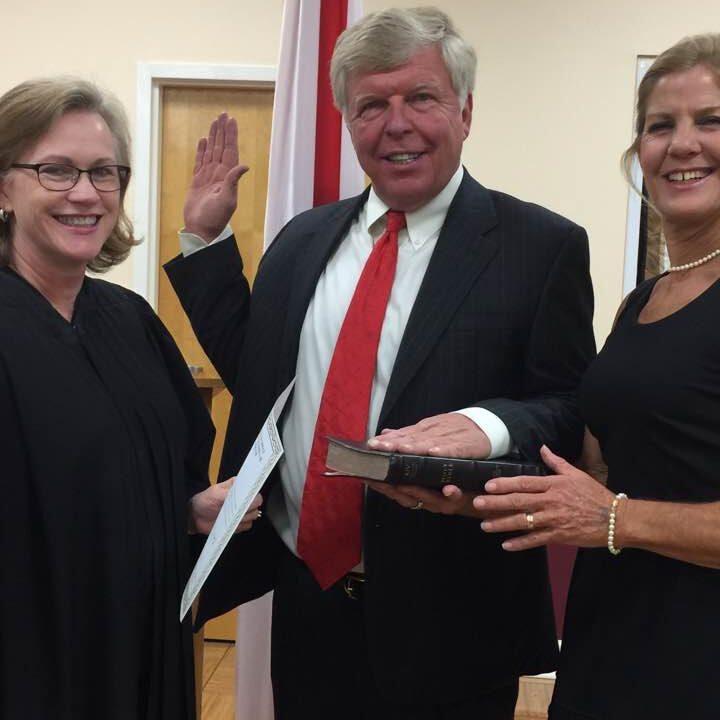
Billy M. Snell, Jr. was elected as mayor of the City of Taylor for his second consecutive term in November 2020. Billy is married to Heidi (Rudd) Snell and they have four children: Brittany, Summer, Houston, and Suzanne. Billy is the proud grandfather of Will.
Billy graduated from Auburn University with a professional degree in architecture and also a bachelor’s degree in building science. He is the president of Snell & Associates Architects and Southern Quest Construction, Inc. Prior to his election as Mayor, Billy served on the City of Taylor Council from 2008-2012.
Today, the mayor in Alabama is recognized by the public as the chief executive of the municipality. That the mayor has been elected from the municipality at large demonstrates the confidence of the electors. The mayor is the political head of the municipality. The mayor, more than any other person, is in constant close contact with the programs and problems of the city or town and is looked to for guidance in all civic and municipal affairs. The office carries with it a trust, respect, and prestige which gives the mayor considerable influence over public opinion.
This influence over public opinion is probably the most effective power a mayor possesses to help accomplish the goals of his or her administration. It is the duty of the mayor to lead and the public expects leadership. Usually, the success or failure of a municipal administration is regarded as the mayor’s responsibility. For this reason, if for no other, it is the mayor’s right and duty to exercise influence over public opinion to secure the support of the council and the public for the objectives of his or her administration.
The working relationship between the mayor and the council usually determines the success of a mayor-council administration. The Legislature has given the council, in mayor-council municipalities, important powers essential to the government of the municipality. Mayors and councilmembers must recognize the fact that each is dedicated, for the next four years, to a common goal – providing the city or town with the best possible municipal government. Therefore, it is imperative that a harmonious working relationship develops between the mayor and the council. The ultimate goal is to produce a team on which every member is recognized as a necessary part.
The mayor must take the initiative to establish a working relationship between the council and the office of the mayor. Many times, the mayor will find it worthwhile to invite council members to join in conferences, aside from regular meetings, to iron out details and differences in the municipal agenda. In so doing, the mayor need not compromise honest viewpoints or surrender leadership.
At times, the council will express divergent views. As the old saying goes, “If two people think alike all the time, one is unnecessary.” In most cases, common ground can be found to develop workable programs. The mayor should not hesitate to indicate a willingness to seek this common ground.
